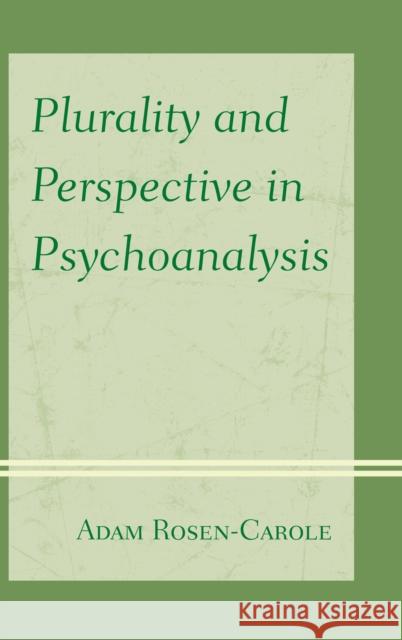Plurality and Perspective in Psychoanalysis » książka
Plurality and Perspective in Psychoanalysis
ISBN-13: 9780739169513 / Angielski / Twarda / 2013 / 586 str.
Psychoanalysis is a historical discourse of suffering and healing under conditions of modernity rather than a metaphysical discourse of universal truth, and must be so due to the ontological indeterminacy of psychic life. Demonstrating this proceeds through the substantiation of two primary theses. First, pluralism in psychoanalysis, thus the perspectival character of psychoanalytic knowing, is irreducible. Second, psychic life is partially pliable to interpretive constitution rather than a self-subsistent object domain fully available to third-personal, objective description. Together, these theses provide the framework for a radical rethinking of the authority of psychoanalytic knowledge and practice and of the nature of psychoanalytic claims to objectivity. Psychoanalytic interpretations are best understood as existentially interrogative - they test who and how one might be - and if successful, to some extent identity formative. The validity conditions of psychoanalytic knowledge thus concern the creation/discovery of satisfactory forms of practice-orienting self-narration rather than those regularly operative in the natural sciences. However, an adequate assessment of psychoanalytic claims requires that the claims of science are given due consideration and the impediments to practice-orienting self-narration under conditions of late modernity are acknowledged.











